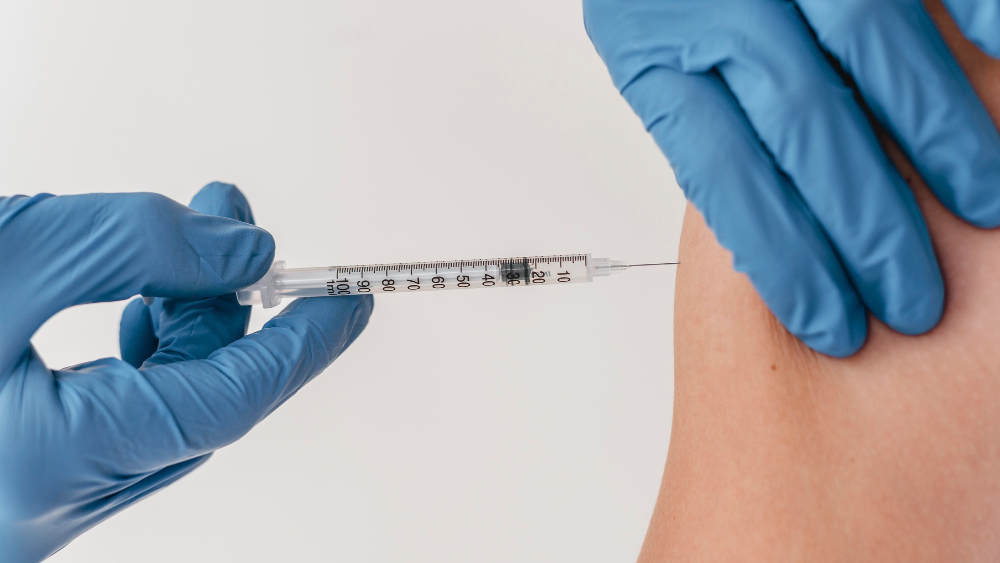In recent years, the integration of weight loss injections into holistic wellness plans has sparked curiosity and interest among individuals seeking effective solutions. But beyond the clinical aspect, how do these injections fit into a broader framework of well-being?
Understanding Weight Loss Injections
Before diving into their integration, let’s understand what weight loss injections entail. These injections typically contain compounds designed to enhance weight loss processes within the body. Common ingredients include:
1. B-12 Injections
- Known for their role in metabolism regulation and energy production.
- May help increase energy levels, potentially aiding in physical activity and calorie expenditure.
2. Lipotropic Injections
- Composed of amino acids, vitamins, and minerals to facilitate fat metabolism.
- May assist in breaking down and eliminating fat from the body.
3. Human Chorionic Gonadotropin (hCG) Injections
- Often associated with the hCG diet, these injections are purported to suppress appetite and promote fat loss.
- Controversial, with limited scientific evidence supporting their efficacy for weight loss.
4. Semaglutide Injections
- Semaglutide Parker CO originally developed to treat type 2 diabetes, has shown remarkable efficacy in promoting weight loss.
- It works by mimicking the action of glucagon-like peptide-1 (GLP-1), a hormone that regulates appetite and food intake.
- Clinical trials have demonstrated significant weight loss outcomes, making it a promising option for individuals struggling with obesity.
Integrating Weight Loss Injections: A Holistic Approach
Incorporating weight loss injections into your overall health and wellness plan requires a comprehensive strategy that considers various aspects of well-being. Here’s how you can seamlessly integrate these injections into your lifestyle:
1. Consultation with Healthcare Professionals
Before starting any weight loss regimen involving injections, it is crucial to consult qualified healthcare professionals from reputable clinics specializing in Weight Loss Glasgow (or your local area). They can assess your medical history, current health status, and weight loss goals to determine the suitability of such interventions.
2. Personalized Nutrition and Exercise Plan
Weight loss injections should complement a balanced diet and regular exercise routine. Work with a nutritionist or dietitian to develop a personalized meal plan that aligns with your weight loss objectives. Additionally, engage in physical activities that you enjoy and can sustain long-term for optimal results.
3. Regular Monitoring and Adjustments
Monitor your progress closely and make necessary adjustments to your wellness plan as needed. Regular check-ins with healthcare providers can help track changes in weight, body composition, and overall health markers, allowing for timely modifications to your approach.
4. Lifestyle Modifications
Incorporate healthy lifestyle habits beyond diet and exercise to support your weight loss journey. Prioritize adequate sleep, stress management techniques, and mindful eating practices to foster overall well-being and sustainability.
5. Education and Awareness
Stay informed about the ingredients and mechanisms of action behind weight loss injections. Understanding how these injections work can empower you to make informed decisions and set realistic expectations regarding their efficacy and role within your wellness plan.
6. Address Underlying Factors
Consider underlying factors that may contribute to weight gain or hinder weight loss efforts, such as hormonal imbalances, medications, or psychological factors. Addressing these issues in conjunction with weight loss injections can optimize outcomes and promote long-term success.
Frequently Asked Questions
Q: Are weight loss injections safe?
A: When administered under medical supervision and in accordance with appropriate guidelines, weight loss injections can be safe for many individuals. However, it’s essential to consult with healthcare professionals to ensure suitability and mitigate potential risks.
Q: How soon can I expect to see results?
A: Results may vary depending on individual factors such as metabolism, lifestyle habits, and adherence to the wellness plan. Some individuals may notice changes within weeks, while others may require longer periods to experience significant results.
Q: Can weight loss injections replace a healthy diet and exercise?
A: Weight loss injections should complement, not replace, a balanced diet and regular exercise regimen. While they may aid in weight loss efforts, sustainable results are best achieved through a holistic approach that includes healthy lifestyle habits.
Q: Are there any side effects associated with weight loss injections?
A: Side effects may vary depending on the type of injection and individual response. Common side effects may include injection site reactions, nausea, or headaches.
Nurturing Your Body, Mind, and Spirit
True health and well-being extend beyond numbers on a scale or inches lost; they encompass vitality, balance, and a profound sense of wholeness.
So, as you embark on your wellness journey, remember to cultivate compassion, patience, and resilience. Celebrate every small victory, honor your body’s wisdom, and trust in the process of transformation.






